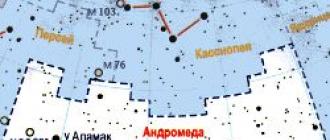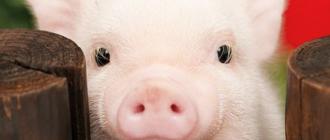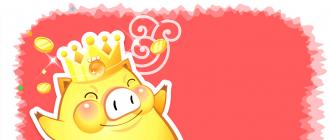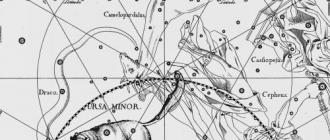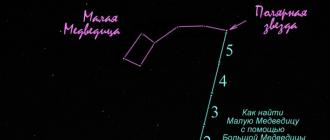Much - many - little - few - упражнения. Самое понятное правило использования much-many-little-few — с практикой! Упражнения по теме much many
Much / many упражнения
Упражнение 1. Insert much or many.
Do you drink ________coffee? I like reading. I read _________ books. We have _______ lessons of English this year. I can"t remember _______ from this text. Do you learn _______ new English words every day? We haven"t got ________ bread. I can"t spend ________ money on toys.
Упражнение
They have too _______ furniture in the room. There are too _____ books on your desk. You have too _____ mistakes in the test. You must drink ______ coffee. You put too ______ vegetables in the soup. Must we learn _____ words for today? We have got _____ sandwiches.
Упражнение 3. Insert much or many.
They don"t have ________ words to learn. There isn"t ________ furniture in the room. There aren"t ________ things in the wardrobe. There isn"t ________ snow in the forest He has got I don"t take ________ money to school. Do you need ________ money? There are ________ new houses in the street. There are not ________ shops in our street.
Упражнение 4. Insert much or many.
You can see ________ cars near the airport You mustn"t eat so ________ bananas You mustn"t drink so ______ coffee. He bought _______ furniture for his new flat. This work won"t take ______ time. Have we got _______ apples for the children? I don"t like _______ salt in the salad. My little sister speaks _________ that"s why we call her «a chatter box».
Упражнение
We didn"t take many food with us.
There are nоt much new subjects this year.
I haven"t much free time today.
He doesn"t do much written exercises every day.
We don"t drink many coffee in our family.
There isn"t much furniture in my room.
There wasn"t many happiness in his face.
Мany new ideas were discussed.
We have much lessons tomorrow.
I don’t have much mistakes in this exercise.
Much / many упражнения (ответы)
Упражнение 1. Insert much or many.
Do you drink much coffee? I like reading. I read many books. We have many lessons of English this year. I can"t remember much from this text. Do you learn many new English words every day? We haven"t got much bread. I can"t spend much money on toys
Упражнение 2. Choose the appropriate answer. Much or many?
They have too much furniture in the room. There are too many books on your desk. You have too many mistakes in the test. You must drink much coffee. You put too many vegetables in the soup. Must we learn many words for today? We have got many sandwiches.
Упражнение 3. Insert much or many.
They don"t have many words to learn. There isn"t much furniture in the room. There aren"t many things in the wardrobe. There isn"t much snow in the forest. Do you need much money? There are many new houses in the street. There are not many shops in our street.
Упражнение 4. Insert much or many.
You can see ________ cars near the airport. You mustn"t eat so ________ bananas You mustn"t drink so ______ coffee. He bought _______ furniture for his new flat. This work won"t take ______ time. Have we got _______ apples for the children? I don"t like _______ salt in the salad My little sister speaks _________ that"s why we call her «a chatter box».
Упражнение 4. - Many, - many, - much, - much, - much, - many, - much, - much
Упражнение 5. Find and correct mistakes if any.
We didn"t take many food with us. There aren"t much new subjects this year. I haven"t much free time today. He doesn"t do much written exercises every day. We don"t drink many coffee in our family. There isn"t much furniture in my room There wasn"t many happiness in his face. Not many new ideas were discussed. We shan"t have much lessons tomorrow. I won"t have much mistakes in this exercise.
Упражнение 5. 1 many - much, 2 much - many, 3 correct, 4 much - many, 5 many - much, 6 correct, 7 many - much, 8 correct, 9 much - many, 10 much - many.
little / few / a little / a few упражнения
Упражнение. Вставьте little или few.
He has got ________ friends.
I drink ______ coffee. I don’t like it.
We must hurry. We’ve got very _______ time.
The Smiths have ______ money. They aren’t rich.
The theatre was almost empty. There were very ________ people there.
There was ______ lemonade in the bottle.
I have _______ time, so I can’t go with you.
He has _______ English books.
There is ______ juice in my glass.
There are ________ bears in the zoo.
Tom Canty was the son of poor parents and had very _______ clothes.
There is too ________ soup in my soup plate. Give me some more, please.
There was too _______ light in the room, and I could not read.
Упражнение. Вставьте «a little» или «a few».
There is _____ milk in the bottle.
There are _______ tomatoes on the kitchen table. Make a salad!
Add ______ salt to the salad.
Тhe fruitcake will be ready in ______ minutes.
I’ve got... time now and I can talk to you.
Упражнение. Вставьте «much», «many», «little», «few», «a little» или «a few».
Have you got _____ money on you?
At the conference we met _____ people.
If you have _____ spare time, look through this book. You will find ______ stories there which are rather interesting.
There are ______ things here which I cannot understand.
Shall I bring _____ more chalk? - No, thank you. There is ____ chalk on the desk. I hope that will be enough for our lesson.
He had ____ English books at home, so he had to go to the library for more books.
She gave him _____ water to wash his hands and face.
Самостоятельная работа:
Ex. 1. Find and correct mistakes if any. Translate the sentences
1. We didn"t take many food with us.
2. There are nоt much new subjects this year.
3. I haven"t much free time today.
4. He doesn"t do much written exercises every day.
5. We don"t drink many coffee in our family.
6. There isn"t much furniture in my room.
Ex. 2. Вставьте «much», «many», «little», «few», «a little» или «a few». Translate the sentences
1. Have you got _____ money?
2. At the conference we met _____ people.
3. If you have _____ spare time, look through this book. You will find ______ stories there which are rather interesting.
4. There are ______ things here which I cannot understand.
5. Shall I bring _____ more chalk? - No, thank you. There is ____ chalk on the desk. I hope that will be enough for our lesson.
6. He had ____ English books at home, so he had to go to the library for more books.
7. She gave him _____ water to wash his hands and face.
Ex. 3. Find and correct mistakes if any. Translate the sentences
1. There wasn"t many happiness in his face.
2. Мany new ideas were discussed.
3. We have much lessons tomorrow.
4. I don’t have much mistakes in this exercise.
Приветствую вас, дорогие мои!
Бытует такое мнение, что русский язык — самый богатый язык с безмерным количеством красивых слов!.. Но вот как же с ним согласиться, когда в русском есть только одно слово, выражающее большое количество — «много» , а в английском — таких слова аж целых три! (на самом деле их больше — это лишь основные...).
Конечно, дебаты по поводу красоты языка разводить я тут не буду — и так ясно, что каждый язык великолепен по-своему! А вот "Правило much many " и еще нескольких других слов, которыми мы выражаем quantity, я вам сегодня разложу так, чтобы вы и не думали больше путаться и ошибаться! Вы готовы? Я уже...
Начнем пожалуй с таблицы, которая вам наглядно покажет разницу. А закончим упражнениями — без них ваши свежие знания улетят в водопроводную трубу — примерно так же, как улетает случайно упавшая туда сережка)).
Я думаю, по таблице все понятно. Теперь объясню словесно и более подробно.
- Much/a little/little (много/немного/мало)
Слова Much/a little/little используются только с существительными, которые нельзя сосчитать, то есть с неисчисляемыми существительными. Much означает большое количество чего-либо — much sugar (много сахара), much water (много воды), much money (много денег). Little – наоборот – очень мало чего-либо – little sugar (очень мало сахара), little water (мало воды), little money (мало денег). A little означает «немного» , это нечто среднее между much и little – a little sugar (немного сахара), a little water (немного воды), a little money (немного денег).
- Many/a few/few (много/немного/мало)
Слова Many/a few/few используются только с существительными, которые можно сосчитать, то есть с исчисляемыми существительными. Many означает большое количество чего-либо — many books (много книг), many friends (много друзей), many thoughts (много мыслей). Few – наоборот – очень мало чего-либо – few books (очень мало книг), few friends (мало друзей), few thoughts (мало мыслей). A few означает «несколько» , это нечто среднее между many и few – a few books (несколько книг), a few friends (несколько друзей), a few thoughts (несколько мыслей).
- A lot of (много)
A lot of можно использовать как с исчисляемыми, так и с неисчисляемыми существительными, что очень удобно. A lot of часто заменяет much и many в утвердительных предложениях , тогда как в отрицаниях и вопросах уместнее использовать much и many.
Do you have much time?
— No, I don’t have much time. or – Yes, I have a lot of time.
Кстати, есть несколько «тонких мест», на которых учащиеся очень часто делают ошибки. Читаем и запоминаем!
!Many people! (не much)
Many clothes! (не much )
Much money! (не many)
Many fruits ! или !Much fruit!
А теперь, как и было мной обещано, задания с ответами в конце
Упражнение 1. Вставьте much или many вместо точек
- Have you found … information about this company?
- They spent … money in a shop yesterday.
- There are so … places in the world that I’d like to visit.
- … people nowadays use bicycles instead of cars to go to work.
- “You’ve put too … salt in the soup, I can’t eat it!”
- “Don’t buy … food in the supermarket, we are going out tonight”.
Упражнение 2. Переведите предложения на английский язык, используя much, many, a little, a few, little, few, a lot of
- У меня мало друзей в этой части города.
- Учительница сказала так много слов, но я ничего не понял.
- Он попросил официанта принести немного воды.
- Осенью многие птицы улетают на юг.
- Ей не нравится, когда в чае слишком много сахара.
- “В шкафу совсем нет места! У тебя так много одежды!”
Надеюсь, ошибок у вас было совсем few!
Ну а если остались вопросы, не стесняйтесь задавать — я на них обязательно отвечу!
Ответы
Упражнение 1.
Упражнение 2.
- I have few friends in this part of the city.
- A teacher said so many words but I understood nothing.
- He asked a waiter to bring a little water.
- In autumn many birds fly to the south.
- She doesn’t like it when there is too much sugar in tea.
- “There is no place in a wardrobe! You’ve got so many clothes!”
Существительные в английском языке делятся на исчисляемые и неисчисляемые.
Исчисляемые существительные можно посчитать, например, две чашки, три книги.
Неисчисляемые существительные НЕЛЬЗЯ посчитать, например, два хлеба, три снега.
В этом уроке мы будем разбираться, какие существительные
в английском языке являются исчисляемыми,
а какие неисчисляемыми,
а также как правильно употреблять указатели количества much, many (много)
с такими существительными.
Исчисляемые и неисчисляемые существительные. Правила и упражнения
Упражнение 1.
Выпишите данные существительные в соответствующие колонки таблицы:
Bread, lemon, water, woman, cheese, sugar, meat, beer, wine, room, bottle, boy, money, glass (стекло), table, dog, glass (стакан), girl, tea, car, milk.
Исчисляемые и неисчисляемые существительные. Правила употребления
Правило 1. Неисчисляемые имена существительные, например, молоко, вода, снег, и др. употребляются только в единственном числе.
Упражнение 2.
1) Книги на столе.
2) Молоко в стакане.
3) Дети в доме.
4) Собаки во дворе.
5) Трава в саду.
6) Цветы в поле.
7) Звезды в небе.
8) Снег на крыше.
9) Птицы на дереве.
10) Деревья в лесу.
Все существительные в этом упражнении следует употреблять в определенным артиклем the , так как имеются в виду определенные предметы. Повторить тему
Правило 2
. Запомните указатели количества
, правильное употребление которых зависит от того, является ли существительное исчисляемым или нет.
Запомните!
much money – много денег
much food – много еды
many people – много людей
Упражнение 3. Вставьте вместо точек much или many.
- There isn’t … money in the pocket.
- There aren’t… pears in the basket.
- There isn’t … food left.
- There are … grapes on the bunch.
- There are … hamburgers on the plate.
- There isn’t … jam on the plate.
- There is … money in his purse.
- There are … people in the street.
Правило 3 . Слова a lot/ much могут также употребляться в роли наречия, то есть отвечать на вопрос как? (совершается действие)
ПРИМЕРЫ
He doesn’t read much. — Он мало читает. (обратный перевод)
Does the cat sleep much ? — Кот много спит?
She works a lot . — Она работает много.
Упражнение 4. Переведите на английский язык.
много есть, много спать, много смотреть телевизор, много болтать, много говорить по-английски
Упражнение 5. Составьте и запиши как можно больше предложений.

Упражнение 6. Заполните пропуск в вопросительных предложениях, используя слова: s ugar, salt, lemons, oranges, juice, tea, jam, sandwiches, butter, bread
1. How many (much)
… have you got?
2. How many (much)
… (is/are) left? (осталось)
Упражнение 7. Переведите на английский, используя указатели количества many, much.
много денег, много дней, много лет, много зим, много времени, много людей, много гостей, много детей, много музыки, много света, много домов, много комнат, сколько книг, сколько историй, сколько хлеба, сколько молока, сколько воды, сколько чая, сколько яблок, сколько ягод
Упражнение 8. Вставьте вместо точек some, any, how much, how many.
Dan and Mary are making a shopping list. — Денис и Мария составляют список покупок.
D: Have we got… cheese?
M: Yes, we’ve got….
D: … cheese have we got?
M: One slice.
D: We haven’t got… scones and there aren’t… chips. Shall we buy…?
M: OK. We’ll get… scones and … chips.
D: What about potatoes? Are there … potatoes?
M: Yes, there are ….
D: Is there … rice?
M: No, there isn’t… rice. We’ve got to buy ….
D: … rice do we need?
Здравствуйте! Я надеюсь, вы помните, с английскими существительными. В этом уроке мы заканчиваем изучение этих указателей количества. Упражнения ниже помогут вам закрепить весь материал и разобраться, чем все-таки местоимения few, little отличаются от a few и a little.
Давайте вспомним, что нужно использовать
much
с неисчисляемыми, а many
с исчисляемыми существительными в значении «много»;
аналогично little / few
в значении «мало, недостаточно»,
аналогично a little / a few
в положительном смысле в значении «немного»,
much/ a lot / little
после глагола в качестве наречий.
Указатели количества Many, much, (a) few, (a) little . Упражнения для продолжающих (уровень 3)
Упражнение 1.
Вставьте в пропуски many, much, few, little
по смыслу.
ПРИМЕР
I can rest today, I have few
things to do. (мало)
I am very busy today, I have many
things to do. (много)
- It was not a secret, very ________ people knew about it.
- I was a secret, very ________ people knew about it.
- She ate so ______ apple pie yesterday that she is never going to eat it again.
- They ate so _____ oranges that they had a stomachache.
- We can’t get into the taxi, we are too _________
- They were _____ and decided not to attack.
- My sister did a lot of shopping and spent ________ money.
- The old man was poor. He had ______ money to live on.
- I have so ________books to read that I don’t know what to start with.
- Nowadays he was very busy and he saw______of his old friends.
СРАВНИТЕ few (little) означает мало (недостаточно), в то время как a few (a little) означает немного.
ПРИМЕР
She has a little free time and can have a rest. – У нее есть немного времени, и она может отдохнуть.
She has little free time. She is always very busy. – У нее мало свободного времени. Она всегда очень занята.
Упражнение 2. Вставьте в пропуски (a) few, (a) little по смыслу.
1. She earns ________ money and can’t buy expensive clothes.
2. She has earned ______ money and can buy a handbag.
3. He had very _______information on the subject and could add nothing.
4. He had ______on the subject and could add some details.
5. The child has _____ friends and he sometimes feels lonely.
6. It is good if you have _____close friends.
7. They ate _____ food and were not hungry anymore.
8. They ate _____ food and they were still hungry.
9. _____ people like him because he was a bore! (зануда)
10. The woman was glad because ____ people came to help her in the garden.
Упражнение 3. Вставьте в пропуски much, little, a little в качестве наречия.
- I love him very _____.
- I speak English ______. (немного)
- She earns _______ and can go to the restaurants every week.
- She earns _______money, she can’t go to the restaurants.
- _______was spoken but nobody believed it. (никто)
- Say _________ (мало) but do _________(много).
- Don’t talk too ____, he is very tired and needs a rest.
- She slept _____ last night and had a bad headache.
Упражнение 4. Вставьте в пропуски по смыслу.
- She ate so ______ fish yesterday that she is never going to eat fish again.
- He ate so ___________ prawns that he is never going to eat a prawn again.
- Could you give me _______ biscuits?
- I gave him __________words of advice.Last week there was so
- ________rain that I couldn’t go out.
- He knows _________ but the __________he knows he knows well.
- She has very __________knowledge of the matter.
- ________people heard about the book, but _________ people read it.
- I had __________ close friends here, so I feel very lonely.
- I am afraid he always thinks too ___________.
Упражнение 5. Вставьте в пропуски much, many, (a) little, (a) few по смыслу.
- There isn’t ________ harm in that.
- Give _______ milk to the kitten, please?
- _____ was said but there are still ______things I should like to add.
- Susan returned to the city at the moment when______were leaving it.
- I have so______things to do that I don’t know which to do first.
- I suggested that he should get______ wine and some bread.
- I began to miss London very _____
- The cat has eaten so______that it can’t move.
- ______was said (было сказано) but______ was done (было сделано).
- _____ heard about the book, but______read it.
Упражнение 6.
- В бутылке есть немного кока-колы.
- У нее мало одежды.
- Кто из них переводит много статей с русского на английский?
- Сколько иностранных языков вы собираетесь учить?
- Извините, у меня мало времени, и я не могу долго разговаривать с вами.
- Мы будем обедать через несколько минут. 9. В комнате много света. 10. Вы пригласили много гостей?
- Ты знаешь много французских слов?
- У вас много бумаги. Дайте мне немного, пожалуйста.
Упражнение 7. Переведите на английский язык.
- У нас сегодня было много посетителей.
- Он зарабатывал мало денег и не мог жить в большом городе.
- Мама дала мне много поручений (things to do), но я смог выполнить только несколько.
- Я прочел много книг по этому вопросу.
- Сейчас в школе мало детей, сейчас каникулы.
- По воскресеньям в парке много людей.
- У вас сегодня много или мало работы?
- В субботу в магазинах много народа.
Привет, Друзья! Как не запутаться, используя much и many? Просто обратите внимание на правила употребления, ведь англичане неслучайно придумали два слова с одинаковым значением.
Они не являются взаимозаменяемыми: в одних случаях вам понадобится только much, а в других – только many. Здесь всё зависит от самого слова, к которому будет относиться much или many. Давайте разбираться, что к чему!
Разница между many и much
Местоимение many употребляется в тех случаях, когда оно относится к предметам (одушевленным или неодушевленным), которые можно посчитать. Слова, обозначающие такие предметы, называются исчисляемыми существительными.
- many children – много детей
- many people — много людей
- many tigers — много тигров
используем many (так как их можно посчитать)
Местоимение Much употребляется только с существительными, которые нельзя сосчитать, то есть с неисчисляемыми существительными.
- much sugar (много сахара)
- much water (много воды)
- much money (много денег)
используем much (так как их нельзя сосчитать. Much означает большое количество чего-либо.)
Смотрим таблицу, которая вам наглядно покажет разницу употребления Much, Many
| Much
/Little
(много/мало) |
Many
/Few
(много/мало) |
A lot of
/ Plenty of
(много) |
|---|---|---|
| Неисчисляемые существительные | Исчисляемые существительные | Исчисляемые и несчисляемые существительные |
| How much money have you got
? – Как много у тебя денег?
There is little ink left in my pen . – В моей ручке осталось немного чернил. |
I have many friends
. – У меня много друзей.
He has got few best friends . – У него несколько (немного) лучших друзей. |
There is a lot of sugar there
. – Там много сахара.
There are plenty of plants in the garden . – В саду много растений. |
Many
употребляется там, где предметы можно посчитать поштучно.
Если же они счету не поддаются, смело вставляйте в предложение слово much
.

Вопросительные предложения
- How much sugar do you take in your coffee?
Сколько сахара ты кладешь в кофе? - How much money do you want for this?
Сколько (денег) ты за это хочешь? - Do you have much work to do?
У тебя много работы? - How many students are there in each class?
Сколько учеников в каждом классе? - How many people are you expecting?
Сколько человек ты ожидаешь?
Отрицательные предложения
- He doesn’t earn much money (существительное money — неисчисляемое).
Он зарабатывает мало (= немного) денег. - Not many people have heard of her (существительное people — исчисляемое).
Немногие о ней слышали. - Barbara doesn’t have many friends.
У Барбары мало (= не много) друзей.
MUCH or MANY or A LOT OF?
Упражнения на тему much / many:
Упражнениe 1. Используйте much или many для выражения Сколько…?.
- How … days?
- How … sugar?
- How … cigarettes?
- How … work?
- How … petrol?
- How … children?
- How … theatres?
- How … juice?
Упражнение 2. Переведите предложения на английский язык, используя much, many, a little, a few, little, few, a lot of
- У меня мало друзей в этой части города.
- Учительница сказала так много слов, но я ничего не понял.
- Он попросил официанта принести немного воды.
- Осенью многие птицы улетают на юг.
- Ей не нравится, когда в чае слишком много сахара.
- “В шкафу совсем нет места! У тебя так много одежды!”
Упражнение 3. Используйте much или many.
Do you drink ________coffee? I like reading. I read _________ books. We have _______ lessons of English this year. I can’t remember _______ from this text. Do you learn _______ new English words every day? We haven’t got ________ bread. I can’t spend ________ money on toys.
Ответы
Упражнение 1.
- How many days? (Сколько дней?)
- How much sugar? (Сколько сахара?)
- How many cigarettes? (Сколько сигарет?)
- How much work? (Сколько работы?)
- How much petrol? (Сколько бензина?)
- How many children? (Сколько детей?)
- How many theatres? (Сколько театров?)
- How much juice? (Сколько сока?)
Упражнение 2.
- I have few friends in this part of the city.
- A teacher said so many words but I understood nothing.
- He asked a waiter to bring a little water.
- In autumn many birds fly to the south.
- She doesn’t like it when there is too much sugar in tea.
- “There is no place in a wardrobe! You’ve got so many clothes!”
Упражнение 3.
Do you drink much coffee? I like reading. I read many books. We have many lessons of English this year. I can’t remember much from this text. Do you learn many new English words every day? We haven’t got much bread. I can’t spend much money on toys.
Друзья ставим лайк, мы старались!
